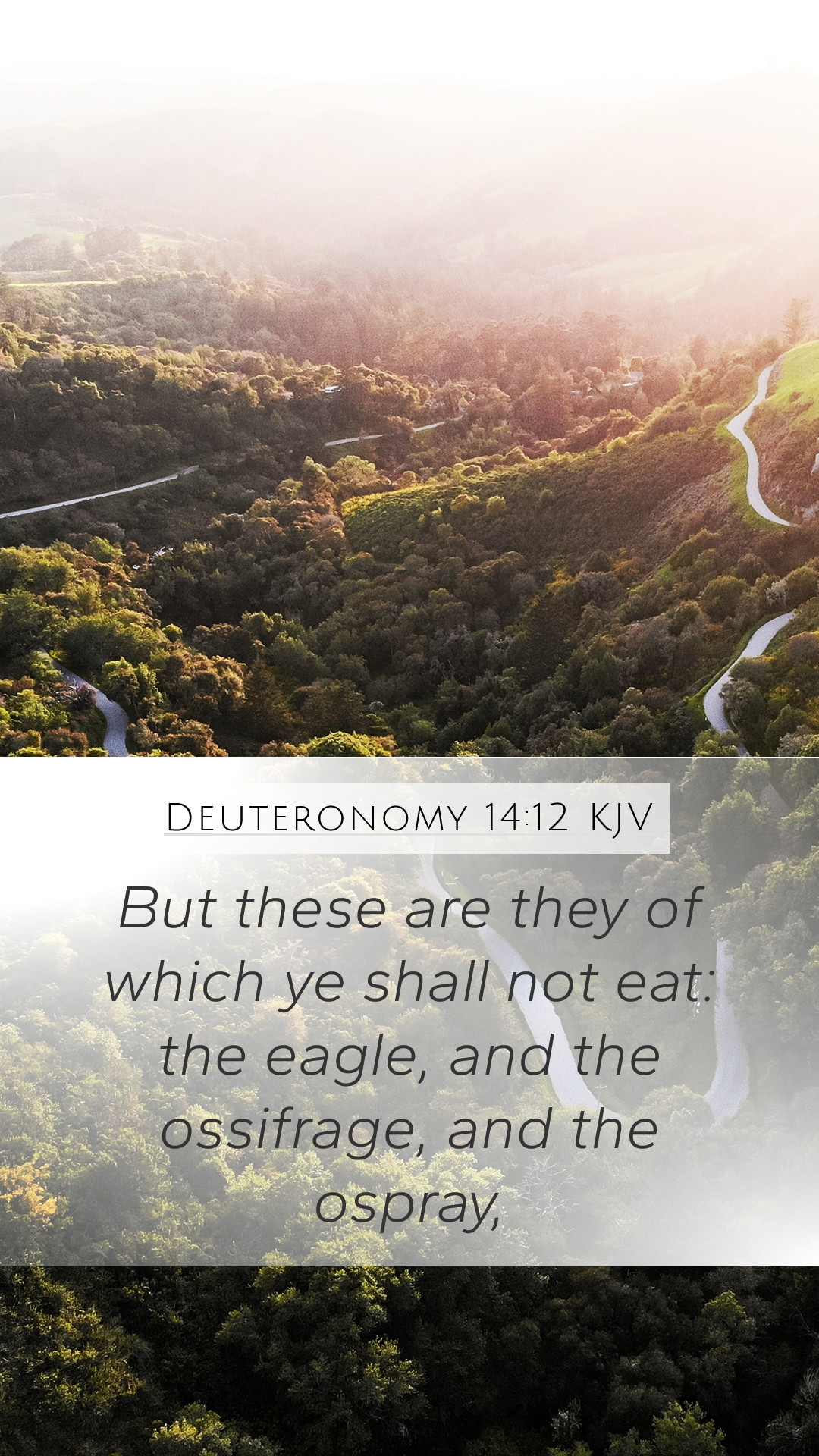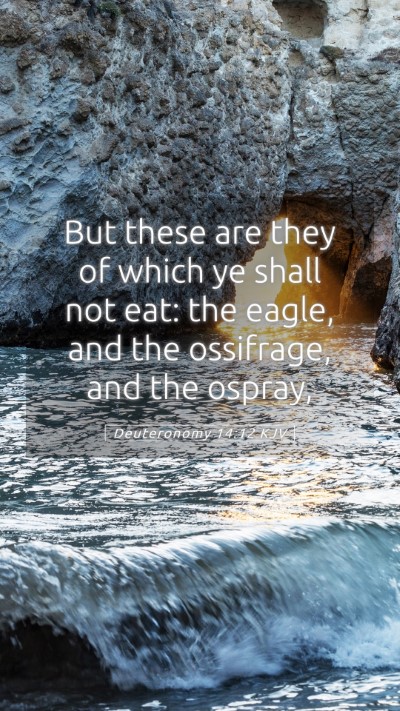Understanding Deuteronomy 14:12
In Deuteronomy 14:12, we encounter an important directive regarding clean and unclean birds as part of the dietary laws given to the Israelites. This verse reads:
"But these are they of which ye shall not eat: the eagle, and the ossifrage, and the ospray."
Overview of the Verse
This verse lists specific birds that are considered unclean in Jewish dietary laws. The significance of these laws can be further understood through comprehensive scripture analysis and biblical exegesis.
Bible Verse Meanings and Interpretations
Various public domain commentaries provide insight into the meaning of this verse:
- Matthew Henry: This commentary emphasizes that the distinction between clean and unclean animals serves a broader purpose. It reflects God's holiness and His plan for Israel to be a separate and holy people.
- Albert Barnes: Barnes underlines the importance of these dietary laws in teaching the Israelites about purity and the need to be mindful of what they consume, both physically and spiritually. He draws attention to the spiritual implications of obedience to God's commandments.
- Adam Clarke: Clarke provides a detailed analysis of the mentioned birds, linking the prohibitions to the broader themes of animal behavior and their role within the ecosystem. He suggests that these laws also serve as a reminder of the moral and ethical considerations regarding consumption.
Historical Context
The laws regarding clean and unclean animals are rooted in the broader historical context of the Israelites' journey from Egypt into the Promised Land. These laws were part of a covenant that established a unique identity for the Israelites.
Significance of Clean and Unclean Creatures
Understanding the significance of clean and unclean creatures is crucial for understanding Scripture. These laws were intended to set Israel apart from other nations and to foster a spiritual discipline among the people.
Bible Study Insights
For those engaged in Bible study groups or online Bible study, this verse encourages deeper reflection on God's instructions for daily living and how these ancient laws continue to inform modern-day faith practices.
Application of the Verse
Learning the implications of clean and unclean as mentioned in Deuteronomy 14:12 invites believers to consider what they allow into their lives. It serves as a metaphor for spiritual purity and discernment.
Cross References
This verse connects with other scripture passages that reinforce the themes of purity and holiness:
- Leviticus 11:13-19: Further details on unclean birds.
- 1 Timothy 4:4-5: Discusses the sanctification of all creatures.
- Matthew 5:17-19: Jesus’ fulfillment of the law and its relevance.
Conclusion
Deuteronomy 14:12 offers profound insights into the importance of distinguishing between clean and unclean in a spiritual and physical sense. The study of this verse leads to greater understanding of biblical teachings and provides valuable lessons for applying ancient scripture to daily life.


